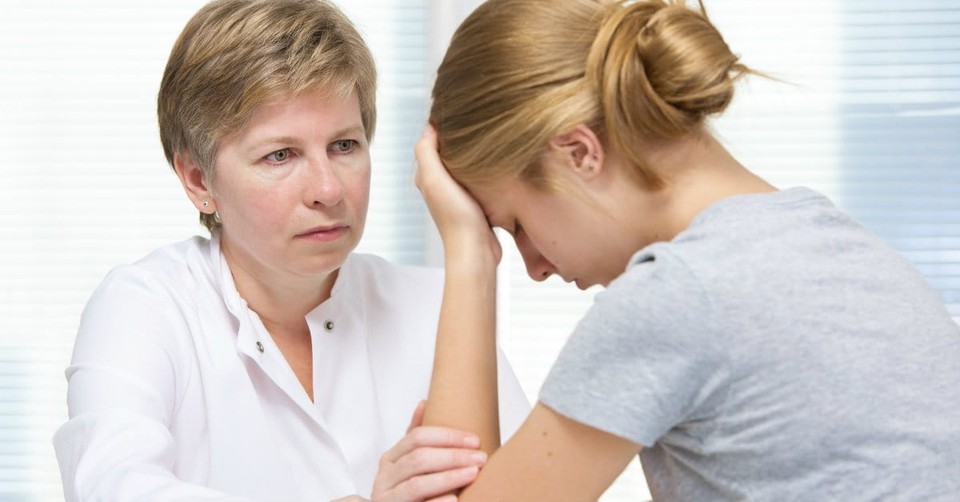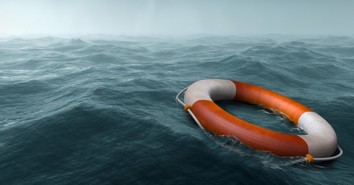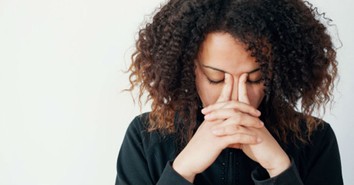My Kid’s an Addict ... Now What?

5 Things I Wish Someone Had Told Me When The Nightmare Began
If I could, I would wrap my arms around you and cry with you. I know your pain. It’s devastating. You feel like all the joy, the hope, and the reason for living is being sucked out of you. Eighteen months ago, I was there, discovering the inconceivable horror—that my daughter was addicted to heroin.
That day is forever seared into my mind. It’s not like the day you first realize your kid uses cuss words or the day you catch her making out with her boyfriend. It’s not like the day she screams, “I hate you,” in a hormone-induced rage. Realizing your child, no matter what her age, is an addict is an assault to every fiber of your mothering being. That fateful day seeps into your heart like red wine on white linen—offensive, stubborn, and determined to leave an eternal stain.
Addiction isn’t something we moms prepare ourselves for. There aren’t many how-to books or magazine quizzes to equip us for that moment when our world rotates off its axis and everything we know, everything we believe in, topples off the surface, and we are left with nothing but terror, isolation, and uncertainty.
My reaction on that fateful day was uncharacteristic for an intelligent, pulled-together, confident woman like myself. Suffice it to say, I lost my mind.
The call came in on a sunny Monday morning while I sat at my desk in my den, paying bills and sipping coffee. It informed us that our twenty-five-year-old daughter was a thousand miles away in a hospital. In detox.
“Detox? For what?” I choked, my throat already closing up.
Her shell-shocked father, with the cell phone still clutched in his palm, replied, “Drugs. She’s on drugs, Karen.”
Spots swam round my head, lightening shot up and down my spine, breathing halted. I froze in my chair, hands still poised over the wireless keyboard in front of me. You may wonder what goes through a person’s mind in a moment like that.
Panic. Shock. Inconceivable fear. Quickly followed by anger and intense grief. Then the realization that her life—your life, is ruined. Thoughts swirl like dry leaves on a bitter November day.
My baby girl. Drugs. Drugs kill. We’ve lost her.
We knew nothing of addiction—certainly nothing that could help us in those first moments, days, even weeks. This was the raging house fire in the middle of the night, the CAT 5 tornado racing towards our house, the slow-motion action scene in that earth-is-being-attacked-by-aliens blockbuster.
My husband dropped the phone on my desk, eyes reddening. A usually strong man of many words, he had nothing to say—nothing to console me with. Helpless, he waited for me to speak. “We’ve got to get to her. Right away. Bring her back home. Get her out of that awful environment. Get her away from whomever has influenced her.”
He nodded, unable to form a response.
The flurry began. Treatment centers were contacted and flights booked. Desperate calls to the nurses’ station at the hospital confirmed that our daughter was safe, for the moment. Sedated. Unable to speak just yet. The calm voice on the line did little to soothe our desperation.
The memory of that day still hurts, even though our brave girl is now one year into her recovery—even though the demon that sought to destroy her has been banished to a far away place, and she’s been given a second chance at this glorious gift called life. The past year and a half has taught us a lifetime of lessons about love, faith, trust, and this insidious disease that is reeking havoc on good families like ours all over the world.
It’s been a roller coaster. Deeply painful. Physically and financially straining. But in the midst of it all, what has emerged has surprised me: a re-awakening of my faith, an indescribable emotional journey, hope personified through an incredible testimony of God’s grace, and confidence that the monster of drug and alcohol dependency can be defeated.
That day, March 2, 2015, was the loneliest, scariest day of my life. Looking back, I wish that someone would have shared some of the nuggets of wisdom I have amassed over the past 18 months. I wish I had been told the following:
1. Addiction is not the result of bad upbringing, bad influences, or bad environment.
My daughter was raised in a “normal” family. She attended church every Sunday and went to Christian summer camp and private school. She had two parents who loved her and drove her to piano lessons and softball practice, took her to Disney World, and sent her to college. But drugs found an avenue into her life anyway.
As a parent, you will second guess the way you raised your child. You will lay awake at night and wonder what you could have done to prevent this tragedy from happening. You must move beyond this way of thinking—and quickly. This wrong theology about the origin of your child’s addiction will suck you into a vortex of despair, robbing you of the strength and energy you need to take care of yourself. Forgive yourself, dear hurting parent. You must—or you will endure even greater pain on the journey that lies ahead.
2. You cannot fix your child.
You cannot control her disease any more than you can control your body’s need for food and air. The shame and guilt your child is enduring is unfathomable. She is miserable. She did not decide one day that her chief aim in life was to disappoint her family, destroy her happiness, and jeopardize her life and possibly the lives of others. No one wants to be an addict. Shame and guilt can and will be dealt with when your child takes the step towards recovery.
Your job is not to heap more guilt on her. Just love her. Know that she is very ill. If she isn’t ready to accept help, let her know you are going to be there for her when she is ready. Resist the urge to remind her of how badly she has screwed up. You will not motivate her to seek help by heaping more guilt on her. Think of it this way—if she were battling cancer, would you believe you were responsible to cure it?
3. Addiction does not have to mean your child’s life is ruined.
Addiction is a chemical alteration of the brain that, left untreated, will destroy the mind, body, and soul. However, with proper treatment and a conscious desire to follow the recovery program, addiction can be managed just as diabetes or high blood pressure can. Life for the recovering addict can become productive, joyous, and meaningful again. There is hope.
Learn all you can about the brain and the compounded effects of drugs and alcohol on the body, mind, and spirit. This is not the time to put your head in the sand. Knowledge is powerful, and the more you know, the better equipped you’ll be to deal with your child’s disease. Understanding the cause of her odd behavior, her illogical rationalizations, or her inability to connect with you emotionally will help you see addiction for the disease that it is.
Addiction (especially to opiates) numbs the brain’s ability to feel or express emotion. This phenomenon is heartbreaking to those who love the addict, and you may be tempted to take things too personally. Treat her with the kindness and understanding you would if she were battling cancer. Temporary changes in appearance, attitude, mood, and behavior come with the disease. As painful as it is, try and remember that your child is suffering far more than you are, even if she can’t articulate it to you.
For me, this knowledge removed much of the stigma and shame I felt, and it helped me view my daughter’s situation with compassion and patience rather than wondering why she couldn’t toughen up and “just say no.” Many treatment centers have advisors who can suggest some resources for you. Make calls. Read books. Attend workshops. Be the advocate for your child. She needs you.
4. When your child does enter a treatment program, it’ll be time for you to stand down.
Let go. Listen to the staff’s advice. Do what is asked of you. Be pliable and teachable and humble. Let the therapists and doctors do their jobs. Your well-meaning, urgent desire to fix your child will backfire. I’ll repeat: Your smothering, mothering, advising, lecturing, even “motivating” your child will not equip her to work her recovery program. You must resist the temptation to be her savior. She needs your support, but she needs you to believe she can do it on her own. Give her the gift of dignity.
“That’s not possible,” you mutter. “My kid is too far gone. She’s not in her right mind any more. She doesn’t know how to make good decisions on her own. I don’t see how she’ll be able to bounce back from this.” My best advice for you, heart-broken parent, is to try not to focus on the past or on the hurdles that lie ahead. No matter how bad off your child is, if you visit a few AA meetings, you’re sure to find a grateful, content, sober person who was once even worse off than your child. Trust that the program works. Trust God to renew her mind, heal her body, and repair her spirit. Every day she spends in treatment is a good day. Celebrate the smallest victories. Expect setbacks, knowing that there is always hope. Never give up.
5. Get thee to an Al-anon meeting.
I know what you’re thinking—Why should I go to Al-anon? I’m not the one with the problem. I hear you. When it was suggested that our family members get involved in the program, I balked at the idea, too. How could sitting in a room full of people and listening to their sad stories help my daughter? After all, she was my main concern. How I was dealing with her addiction was irrelevant. But, because we were willing to do anything to help our daughter get better, my husband and I did attend a few meetings. We didn’t like them—not one bit.
As Christians, we have always looked to the Bible as our source of truth and inspiration. We also believed that twelve-step programs were for people who didn’t know Jesus—people who were okay with any old “higher power” of their choosing. We did not think it was a program that we would benefit from, but the experts encouraged and advised us to try out six different meetings before making any conclusions. Honestly, I didn’t want to do that. I had enough on my plate. My emotions were all over the place, and I didn’t want to go to a meeting only to be reminded of all the bad things that addiction did to people.
Many months later, having witnessed the transformation in my daughter, and after reading several AA and Al-anon books, I decided to give the meetings another chance. What I found were people who were intelligent, wise, joyful, welcoming, encouraging, understanding, non-judgmental, and testifying of the phenomenal benefits they were enjoying thanks to their commitment to the twelve-step program. I also found my Christian faith intricately woven into the fabric of Al-anon. It was not a kooky, new-age bunch of dream-catchers. It was, and is, a tremendously insightful opportunity to learn and grow as a human being. Whether your child is actively in her addiction, in a treatment program, or in recovery, Al-anon might be the best thing you can do for you. I urge you to give it a try.
If you, or someone you know, is facing obstacles and heartaches that seem impossible to overcome, I pray that the things I’ve shared will help you navigate the journey. Remember to forgive yourself. Don’t dwell on regrets or mistakes. Realize you can’t control this disease. Learn all you can and let the knowledge fuel your hope for a brighter future. Be open and teachable. And most importantly, take care of yourself. There’s a good reason why every pre-flight speech instructs us to put on our oxygen mask first before assisting others!
Parents, we are all in this together. Addiction affects millions of us every day. With love, faith, knowledge and perseverance, we can be okay. One day at a time.
Karen Pashley is the author of the #1 Amazon best-selling novel, “Precious in His Sight,” which was her first foray into writing. Pashley hosts “Girls Dine In”-- part supper club, part cooking class -- every month for women in Nashville, Tennessee. She and her husband are parents to four amazing young women, and grandparents to one perfect toddler. For more information, visit www.KarenPashley.com.
Publication date: June 30, 2016
Originally published August 29, 2017.





